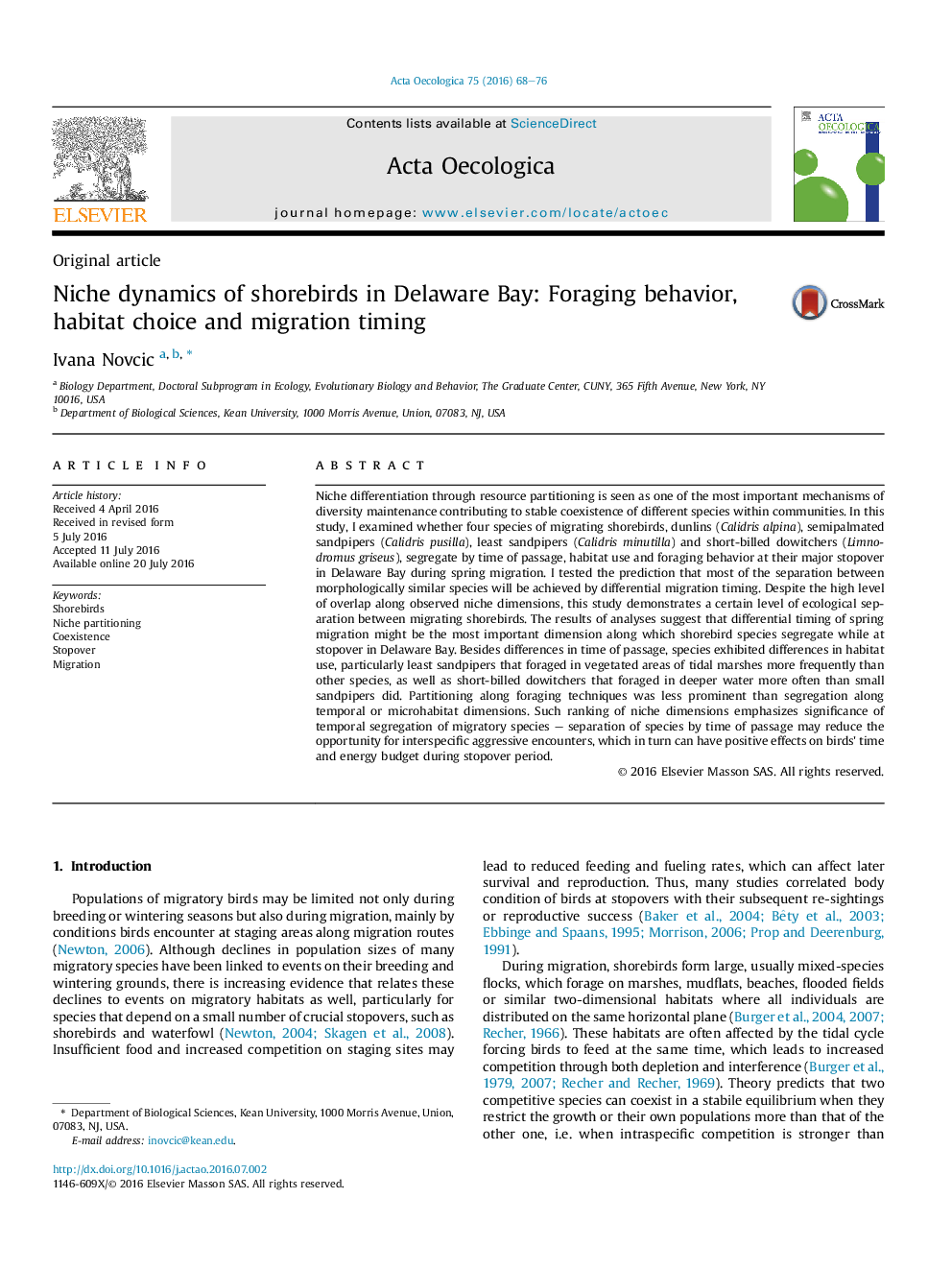| کد مقاله | کد نشریه | سال انتشار | مقاله انگلیسی | نسخه تمام متن |
|---|---|---|---|---|
| 6297336 | 1617697 | 2016 | 9 صفحه PDF | دانلود رایگان |
عنوان انگلیسی مقاله ISI
Niche dynamics of shorebirds in Delaware Bay: Foraging behavior, habitat choice and migration timing
ترجمه فارسی عنوان
دینامیک ناهنجاری های ساحلی در خلیج دلاور: رفتار تغذیه ای، انتخاب زیستگاه و زمان مهاجرت
دانلود مقاله + سفارش ترجمه
دانلود مقاله ISI انگلیسی
رایگان برای ایرانیان
کلمات کلیدی
موضوعات مرتبط
علوم زیستی و بیوفناوری
علوم کشاورزی و بیولوژیک
بوم شناسی، تکامل، رفتار و سامانه شناسی
چکیده انگلیسی
Niche differentiation through resource partitioning is seen as one of the most important mechanisms of diversity maintenance contributing to stable coexistence of different species within communities. In this study, I examined whether four species of migrating shorebirds, dunlins (Calidris alpina), semipalmated sandpipers (Calidris pusilla), least sandpipers (Calidris minutilla) and short-billed dowitchers (Limnodromus griseus), segregate by time of passage, habitat use and foraging behavior at their major stopover in Delaware Bay during spring migration. I tested the prediction that most of the separation between morphologically similar species will be achieved by differential migration timing. Despite the high level of overlap along observed niche dimensions, this study demonstrates a certain level of ecological separation between migrating shorebirds. The results of analyses suggest that differential timing of spring migration might be the most important dimension along which shorebird species segregate while at stopover in Delaware Bay. Besides differences in time of passage, species exhibited differences in habitat use, particularly least sandpipers that foraged in vegetated areas of tidal marshes more frequently than other species, as well as short-billed dowitchers that foraged in deeper water more often than small sandpipers did. Partitioning along foraging techniques was less prominent than segregation along temporal or microhabitat dimensions. Such ranking of niche dimensions emphasizes significance of temporal segregation of migratory species - separation of species by time of passage may reduce the opportunity for interspecific aggressive encounters, which in turn can have positive effects on birds' time and energy budget during stopover period.
ناشر
Database: Elsevier - ScienceDirect (ساینس دایرکت)
Journal: Acta Oecologica - Volume 75, August 2016, Pages 68-76
Journal: Acta Oecologica - Volume 75, August 2016, Pages 68-76
نویسندگان
Ivana Novcic,
